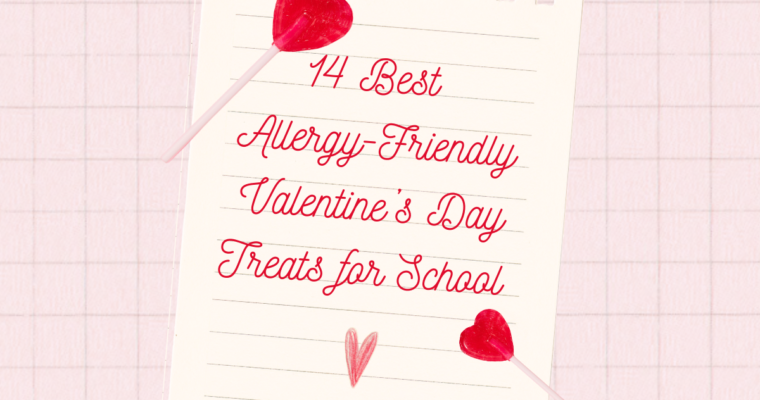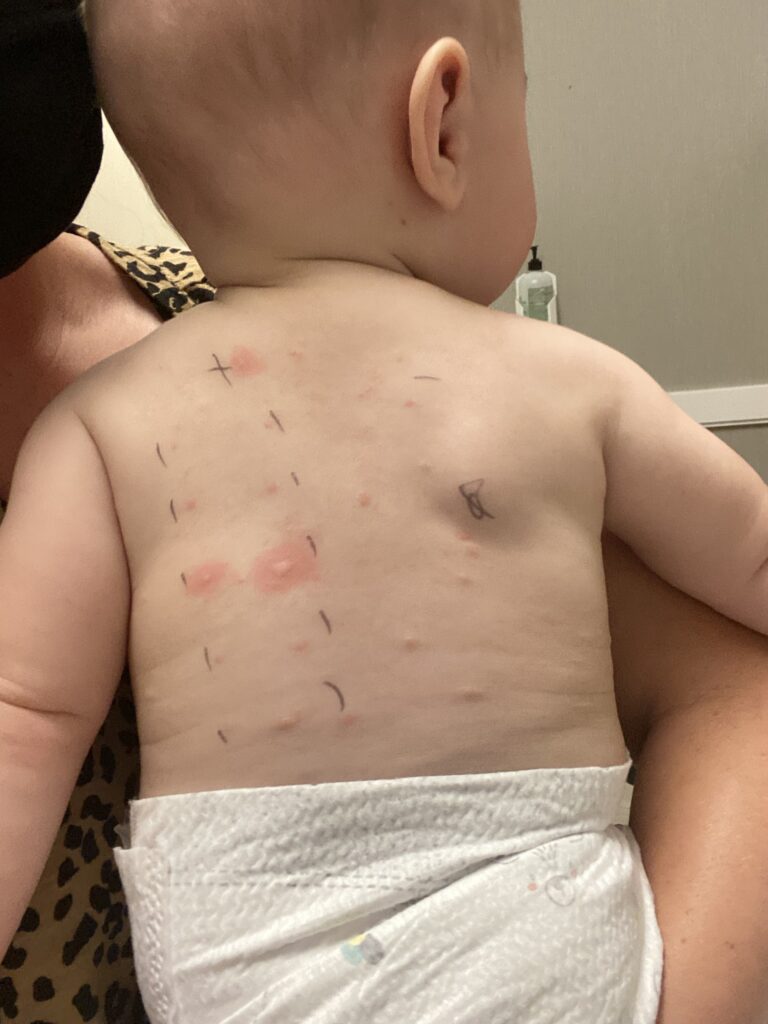The Signs
My son was just 4 months old when I noticed signs of a potential food allergy — a rash beginning to form on his face. At first, we didn’t think much of it. After all, he hadn’t started solids yet, so how could it be a food allergy? There were so many other possible explanations — baby acne, drool rash, impetigo, eczema. We suspected everything except food allergies.
Over the next two months, my son’s skin continued to flare up, becoming increasingly red, irritated, and angry. Every time I looked at my baby’s irritated skin, I felt a knot of anxiety in my stomach.
Despite the well-meaning advice from friends and family — “It’s just normal baby skin doing baby skin things” — my motherly instincts told me that something wasn’t quite right. I found myself spiraling down endless Google searches, trying new bath soaps, experimenting with different moisturizers— yet, nothing seemed to help.
A Mother’s Intuition
By the time my son was six months old, his eczema had progressed. The patches were now unmistakable — behind his knees, around his neck, and on his elbows, all the classic spots. I watched as these red, scaly patches became more pronounced, and I couldn’t shake the feeling that something deeper was at play.
At his 5-month checkup, I brought up the issue with our pediatrician, hoping for some clarity. She listened patiently as I described the flare-ups and how I was starting to suspect something more than just a skin condition. My son’s doctor affirmed the steps we had already taken and prescribed a corticosteroid cream for the more persistent areas. She didn’t seem overly concerned, which in some ways, was both a relief and a source of doubt.
To my relief, we started seeing slight improvements in my son’s eczema after sticking to a strict daily regimen of drool bibs, moisturizers, and cortisone cream. The flare-ups seemed to ease a bit, and I allowed myself a moment to breathe, thinking maybe things were finally settling down. But little did I know, this temporary calm would soon be shattered during a family vacation.
The Allergic Reaction
It was during this trip that we decided to introduce solids to my son— with typical first foods: rice cereal, oatmeal, and pureed peas and carrots. He seemed to do okay at first, but by the second day, I could tell something was wrong. His skin, which had been fairly calm for a while, erupted into a full-body rash. His face was covered in red blotches, his body was splotchy and irritated, and worst of all, he seemed miserable. I could see his discomfort in every movement, and I knew we couldn’t ignore it.
It was at that moment that the thought hit me — What if this is an allergic reaction? My heart sank as panic set in. I had seen enough to recognize that this wasn’t just another eczema flare-up. This was something different. Something more urgent.
I immediately scheduled a telemedicine appointment with our pediatrician, praying for some answers. The call was a blur — she confirmed my suspicions that it could indeed be an allergic reaction. As we spoke, I frantically tried to absorb every detail. We were instructed to give him an antihistamine to help with the rash, immediately stop introducing any new solids, and set up an appointment with an allergist for further testing. I ended the call feeling a mix of relief that we had a plan, but also overwhelmed by the unknowns that now lay ahead.
A Diagnosis
Fast forward two weeks, and I found myself sitting in a sterile, brightly lit doctor’s office, holding my baby while a sweet nurse gently drew blood from his tiny arm. The thought of my son enduring any kind of test made my stomach churn. The nurse then carefully scratched his back, marking each potential allergen. I held my breath as the seconds ticked by, and then, almost immediately, I saw the change. His smooth, baby-soft skin began to erupt in tiny, angry hives.
Sure enough, through skin and blood tests it had been confirmed: food allergies were at the root of it all. Finally, we had answers and his skin reaction made sense. What was my favorite snack while breastfeeding? Nut packed trail mix. Who was my 6-month-old’s best friend? My in-laws’ sweet dog. What was one of the first foods we introduced? Green pea.
At the end of the appointment, we left with an Allergy Action Plan, a prescription for an Epipen, and a list of things to avoid:
- Peanut
- Pistachio
- Cashew
- Green Pea
- Dog
Just the Beginning
We would later come to realize, through trial and error, that my son is also allergic to all nuts, salmon, sunflower seeds, and most legumes: including soy, lentils, several types of beans, and chickpeas. To this day, through in-office food challenges and food introductions at home, the list of allergens is always either expanding or shrinking.
Our food allergy journey is just beginning, as my son is not yet four years old. While there’s so much uncertainty ahead, I’m cautiously optimistic about what the future holds. I’m learning every day and doing my best to navigate this new chapter with hope and determination to ensure my son feels safe, and most importantly empowered to navigate life with food allergies.
*If your child is experiencing an allergic reaction seek medical attention immediately. If you suspect your child may have a food allergy contact your pediatrician for medical advice.




